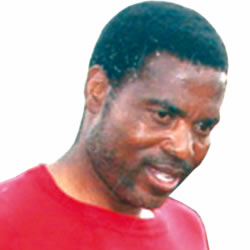To note or to endorse is not the question

dysfunctional. It has become apparent that the only lasting solution to the Zimbabwean political question can now only come from an election, whose outcome may not be contested. Anything short of this is only likely to prolong the crisis.
Nothing has brought this to the fore more than the recent extraordinary summit meeting of Sadc Heads of State and Government held in Sandton, South Africa a fortnight ago.
Since that summit, media focus and attention has been on interpretation of the outcome of that meeting, resulting from a somewhat ambiguous communiqué, and what it means for the future course of political developments and events in Zimbabwe.
To the pessimistic, it is easy to imagine, after all the media hype that our political system is in a state of entropy, to borrow from the second law of thermodynamics, continuously winding from an organised state to chaos, moving from predictability to uncertainty.
Suddenly, the nation found itself caught up in the semantic trap that Cambridge University Professor Ivor Armstrong Richards labelled the “proper meaning superstition” – the mistaken belief that words have a precise definition.
Even though I A Richards was a poet, literary critic, and the author of forty-nine books, he was first and foremost a teacher. And the lesson he most wanted students to learn was that meanings don’t reside in words; they reside in people.
Like chameleons that take on the colouration of their environment, words, according to Richards take on the meaning of the context in which a person encounters them. This suggests that “most words, as they pass from context to context, change their meanings.”
Context, which Richards describes as the “cluster of events that occur together”, is therefore the key meaning. Context is the whole field of experience that can be connected with an event – including thoughts of similar events.
If he were still alive, Richards would be enjoying a real chuckle at the on-going debate over the true meaning and essence of the Sadc’s Sandton communiqué, as it presents a case for a new rhetoric that would be the “study of misunderstanding and its remedies.”
That information is provided for purposes of creating the opportunity to reduce uncertainty is perhaps what might have been lost to the authors of the Sandton communiqué.
To be fair, even the Zimbabwe media has not fared any better in their reportage and analysis of the outcome of that Sadc summit to the extent I can surmise they failed to accurately capture what the summit achieved, and how this impacts on Zimbabwe going forward.
Where there is no information, there is the opposite, entropy.
There is, it would appear to me, a direct correlation between the degree of disorder and certainty in our political system and that of the media, characterised by polarisation and abysmally low professional standards and unethical practice.
This is easily discernible in the patently partisan slant of news reports. Even use of discriminatory language, exaggeration and invective is allowed to pass by editors in what are national family newspapers.
Nobody was “embarrassed,” “dressed down” or “humiliated” in Sandton. How so? Certainly not President Mugabe as some headlines claimed, maybe out of lack of understanding of how diplomacy works in such circumstances as we find ourselves in.
If anything, we ought to be collectively embarrassed, as a nation, to harbour this false belief that outsiders hold solutions to our own challenges as Zimbabwe. We are stripping ourselves bare rather shamelessly.
We all understand that ambiguity is an inevitable condition of language. We do not know for sure if the authors of the Sadc communiqué chose to be deliberately ambiguous or it was by default? Whichever way, they ought to say what they mean and mean what they say. That they left us caught up in a semantic triangle does not help our situation.
The whole scenario of a mediation process to settle what is essentially an internal political matter, as championed by Sadc has always been a bothersome and disquieting prospect.
Ultimately, settlement of the Zimbabwean political question will depend not so much on the mediatory role of Sadc than it will on internal political dynamics.
In essence, the GPA is an acknowledgement by all Zimbabwe’s major political protagonists, that it is what we do as Zimbabweans, to settle to our own affairs, that is crucial to determining our future. We are the critical role players, not Sadc.
This may explain why the mediator appears hamstrung to maintain pace and momentum to a speedy resolution of the political question in Zimbabwe.
It is pitiful that some sections of the media have sought to distort the role of the mediator, by portraying the image of President Zuma as that of a judge, or a higher authority presiding or called upon to settle a dispute.
The key word that ought to guide the media is “facilitator”. Sadc has hardly appointed Zuma as ruler over Zimbabwe.
Nor has Zimbabwe lost sovereign status to become a sixth province of South Africa.
As Zimbabweans, we should take pride as a nation with such a glorious history of an incessant and uncompromising quest for democracy, social justice, equality and non-racialism.
We are capable of managing our own affairs. I do not believe we need instruction from anybody on these matters. The protracted struggle for independence had human right issues as its key demands. We ought to by now, as a nation, be keenly conscious and aware, on matters of sovereignty and self-determination, that we cannot suborn our sovereign and legitimate rights to any external power, big or small.
We certainly must guard against the prospect of allowing others to determine our course, nor pace in building a truly egalitarian society. We need to take pride in our collective ability to become a beacon of hope on the African continent.
Nothing short of an open, free and fair plebiscite will settle the steep and deep-rooted political differences, the source of all misunderstandings that pervade the national body politic.
Either we accept wholesale, that the mediator has a pre-eminent role to play in bringing us together to narrow our differences, not widen them, or we reject dismally their intervention as unwanted and unwelcome meddling in our sovereign affairs?
On the surface, it would appear as though this is a settled matter. It is not. If it were, there would be little or less grousing with the role of the mediator, in so far as their objectivity and impartiality is concerned.
Murmurings of external powers and forces exerting their overbearing influences on the mediation process are not what we would have wanted. It would have been desirable were the mediator to remain stoic and indifferent to such pressure, even where it is evident others are working to drive a wedge between President Mugabe and President Zuma.
Clearly, what needs to be done is not the drawing up of one roadmap upon another, where we have established the GPA as the road to the settlement of our political disputes.
What we have to actively pursue, is the creation of an enabling environment for the holding of elections, sooner rather than later.
All we ever needed to do has already been clearly spelt out in the GPA.
Rather than celebrate what is only a perceived but a pyrrhic diplomatic victory, it is in our collective good to direct efforts to prepare the ground for the holding of the elections at the earliest possible time, that we settle, once and for all, our running and crippling political differences.
The question therefore arises, what next after Sandton? There clearly is no doubt that it is what we do as the people of Zimbabwe that will matter in the coming days, months and years ahead.
Writing a new national constitution should never be a permanent enterprise.
Once written, a good constitution should endure the taste of time. Americans take pride in their constitution to this day more than three hundred years after Madison.
Very few amendments have been effected to their constitution to the extent they are grateful to the founding fathers for having been inspired to come up with an enduring document that has served the American people so well.
We can quote many other such examples of good constitutional order across the globe that we can emulate.
It is to me therefore key, to ensure closure and finality of to the constitution making process to pave way for a referendum, following which national general elections may be held.
All other conditions, necessary and sufficient for the holding of an election whose outcome may not be disputed have clearly already been spelt out in the GPA.
If anything can be concluded from the Sandton Sadc communiqué, it is that Sadc leaders want elections held soonest to resolve the political question in Zimbabwe.
Their stance quite clearly is that they want a speedy resolution to the Zimbabwean question, where they express a sense of exasperation with our own slow pace and continued bickering over agreed positions, hindering full implementation of the GPA.
In other words, we already know, as Zimbabweans what we need to do. It is time to get on with the job. We can play the blame game forever, and seek to score cheap and meaningless political points to our own peril.
What is worse for us is to seek outside help to deal with our own internal affairs. It may be just what others are praying for, that we become such easy prey. Every nation ought to look after its own interests.
There is no charity in international diplomacy, more so in today’s unpopular world.
This is not the time for reckless political gamesmanship. What is in our national interest is to build a stable democracy for our people and nation to prosper.
This cannot be suborned to Sadc or for that matter to President Jacob Zuma of South Africa.
We need to hold our heads up as proud people. We have all the knowledge of what needs to be done. Just a little wisdom is needed.











Comments